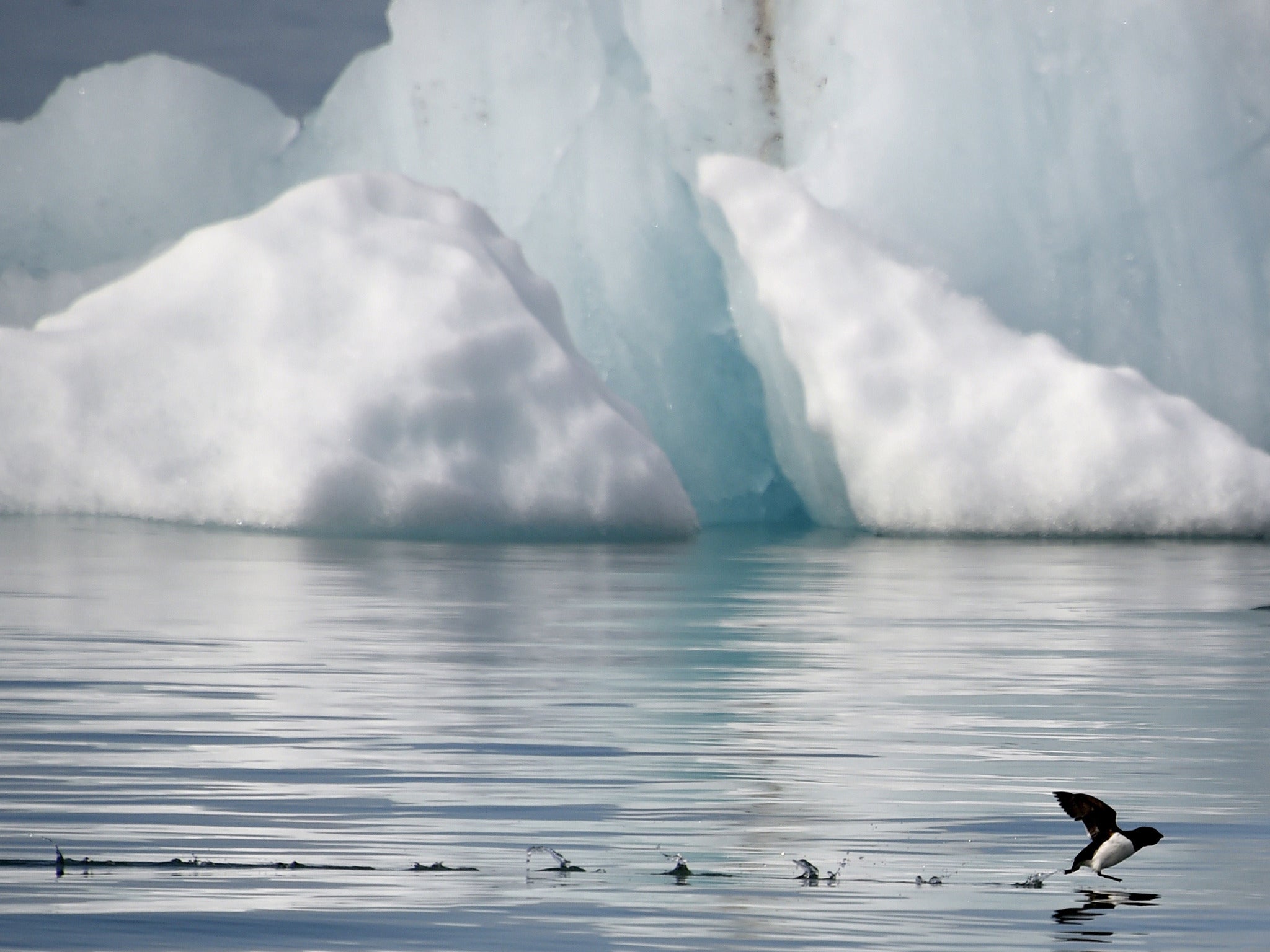Global warming: National Geographic map shows 'striking' retreat of Arctic ice sheet
Images taken from atlases from 1999 to 2014 show a dramatic reduction in Arctic ice as temperatures rise

Your support helps us to tell the story
From reproductive rights to climate change to Big Tech, The Independent is on the ground when the story is developing. Whether it's investigating the financials of Elon Musk's pro-Trump PAC or producing our latest documentary, 'The A Word', which shines a light on the American women fighting for reproductive rights, we know how important it is to parse out the facts from the messaging.
At such a critical moment in US history, we need reporters on the ground. Your donation allows us to keep sending journalists to speak to both sides of the story.
The Independent is trusted by Americans across the entire political spectrum. And unlike many other quality news outlets, we choose not to lock Americans out of our reporting and analysis with paywalls. We believe quality journalism should be available to everyone, paid for by those who can afford it.
Your support makes all the difference.National Geographic has produced an animated gif showing the "striking" retreat of Arctic ice that has occured over the last few years.
The images, taken from National Geographic atlases from 1999 to 2014, show a substantial reduction in the Arctic ice sheet, caused as the ocean heats up due to global warming.
Available on the publication's website, the gif comes in the wake of President Barack Obama's unveiling of his 'clean power plan'.
Announcing the plan, which aims to help tackle global warming by reducing emissions from US power plants, Obama commented: "Shrinking ice caps forced National Geographic to make the biggest change in its atlas since the Soviet Union broke apart."
National Geographic appears to concur with the president. It noted that the shrinking of the Arctic ice sheet, illustrated in the 10th edition of its atlas, "is one of the most striking changes in the publication's history".
It said the ice had retreated further still since the atlas was published in September 2014.
"You hear reports all the time in the media about this," Juan José Valdés, a geographer with National Geographic.
"Until you have a hard-copy map in your hand, the message doesn't really hit home."
Join our commenting forum
Join thought-provoking conversations, follow other Independent readers and see their replies
Comments